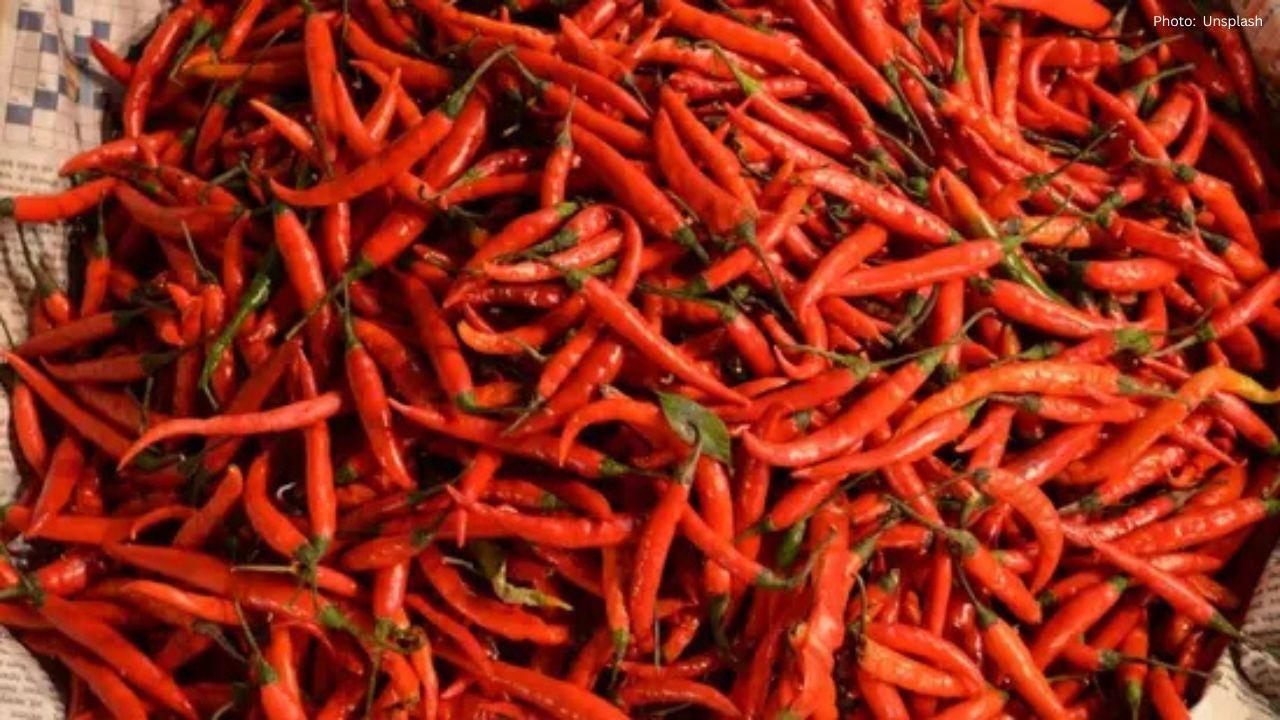You have not yet added any article to your bookmarks!

Join 10k+ people to get notified about new posts, news and tips.
Do not worry we don't spam!

Post by : Saif Rahman
Globally, from India’s spicy curries to Mexico’s zesty salsas, many relish the burn of hot food. But what fuels our attraction to this fiery experience? Researchers suggest that our penchant for spicy fare stems from the excitement it ignites in our minds—a delightful mix of pain and pleasure.
The heat we experience when consuming spicy foods originates from capsaicin, a chemical responsible for chillies’ heat. This compound serves as a natural deterrent to prevent animals from consuming the seeds. Consuming capsaicin makes our bodies react as if they’re under threat, resulting in a sensation of heat and discomfort.
When capsaicin interacts with our TRPV1 receptors, which detect genuine burns, it produces a sensation akin to actual heat. This is why indulging in a spicy curry or munching on a green chilli can evoke burning sensations in the mouth. In response, our bodies start sweating, tearing up, and producing a runny nose to cool down—mechanisms to counter the perceived irritant.
What’s fascinating is that even though our body interprets this as pain, our brain acknowledges that there’s no real danger. This illusion of risk results in a unique exhilaration, similar to what one feels during rollercoaster rides or horror films. We derive joy from a controlled sense of danger.
Research refers to this phenomenon as “controlled discomfort.” As we consume spicy fare, we feel sharp pain followed by a surge of happiness-inducing chemicals like endorphins and dopamine. While endorphins serve as natural pain alleviators, dopamine provides a gratifying sensation—combined, they create a pleasurable cycle that draws us back for more spicy experiences.
Over time, frequent consumers of chillies develop a tolerance, leading to decreased sensitivity towards capsaicin. This adaptability allows them to relish hotter dishes without the overwhelming discomfort. Hence, spice enthusiasts can enjoy exceedingly spicy meals that might cause others distress.
Cultural influences significantly shape this love for heat. In nations like India, Thailand, and Mexico, zesty flavors are integral to daily dining. Generations grow up with these flavors, allowing their palates to adjust. Additionally, in hotter regions, spices assist in perspiring, thus aiding in temperature regulation.
Experts note that our attraction to spicy cuisine goes beyond mere taste—it’s a sensory adventure. Each bite presents a thrilling challenge that elevates heart rates and offers a brief energy boost. For many, spicy food isn’t just sustenance; it’s a thrill ride on a plate.
From a psychological perspective, savoring spicy food can be seen as a demonstration of courage and resilience. In various cultures, individuals take pride in their ability to withstand the heat—it transforms into a competitive endeavor with events like “chili-eating contests” making the spectacle even more enjoyable.
Health-wise, moderate chilli intake may yield benefits. Capsaicin contributes to enhanced metabolism, aids digestion, and might reduce inflammation. Some studies even indicate it can facilitate calorie burning and support cardiovascular health. However, excessive spice consumption may irritate, particularly for those with sensitive stomachs.
In simple terms, our fondness for spicy food is rooted in both science and emotion. Our brains bask in the thrill, our bodies adapt, and the flavor becomes instantaneously addictive. Chillies offer a delightful adventure that can be relished at any dining experience.










Landfill Collapse in Cebu Kills Four, Dozens Missing as Rescue Continues
A massive landfill collapse in Cebu City has left four dead and dozens missing as rescuers race agai

Netanyahu Says Israel Aims to End US Military Aid Within 10 Years
Israeli PM Benjamin Netanyahu says Israel plans to gradually stop relying on US military aid within

Dhurandhar’s Box Office Roars On: Ranveer Singh’s Spy Thriller Shatters Records
Ranveer Singh’s Dhurandhar earns ₹3.6 Cr on Day 36, totaling ₹844.45 Cr in India. The spy thriller s

FCC Clears SpaceX to Launch 7,500 More Starlink Satellites Worldwide
SpaceX gets FCC approval to add 7,500 new Starlink satellites and upgrade frequencies, boosting glob

Indonesia Blocks Elon Musk’s Grok AI Over Unsafe AI Content
Indonesia temporarily blocks Elon Musk’s Grok chatbot due to unsafe AI-generated images. The move ai

PV Sindhu’s Malaysia Open Run Ends with Semifinal Loss to Wang Zhiyi
PV Sindhu’s comeback at Malaysia Open ends in semifinals as China’s Wang Zhiyi wins 21-16, 21-15. Si